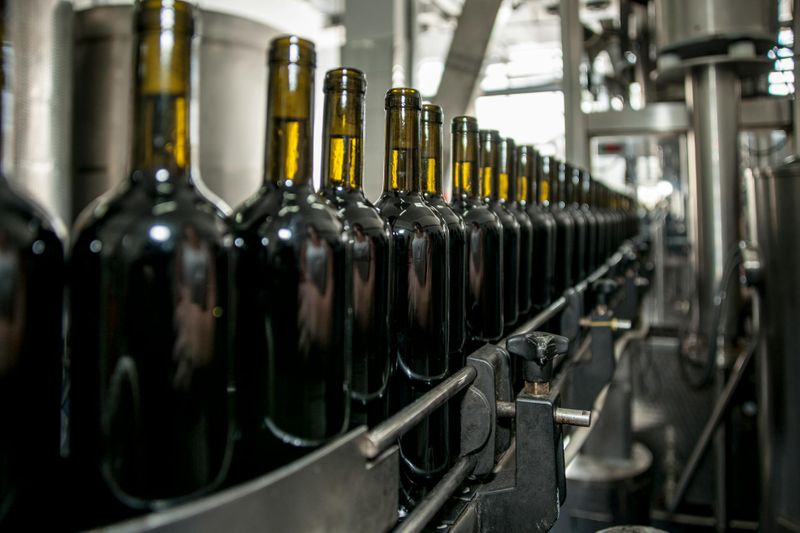At a glance
- Exceptional mechanical strength and durability
- Low friction and high chemical resistance
- Ideal for food production, machinery, and bottling industries
Cast nylon is a highly versatile engineering plastic that has become a preferred choice in various industries. Known for its exceptional mechanical properties and adaptability, cast nylon is particularly valued in sectors such as food production, machinery manufacturing, wine bottling, beverage processing, and canning.
This is a comprehensive guide for businesses in Shepparton and Southern NSW, highlighting the benefits and applications of cast nylon in various sectors.
This article delves into the unique features and advantages of cast nylon, emphasising why it stands out in industrial applications.
What is Cast Nylon?
Cast nylon, a type of polyamide, is produced through a casting process that involves polymerising caprolactam in a mould. This process results in a material that exhibits superior mechanical properties compared to extruded or injection-moulded nylons. This makes it ideal for manufacturing large, near-net-shape parts that require precise machining.
Unique Features of Cast Nylon
Very Low Internal Stresses
Explanation: Cast nylon is manufactured with minimal internal stresses, which enhances its dimensional stability and reduces the risk of deformation over time.
Industry Benefit: In mechanical engineering, components such as gears and bushings maintain their precise dimensions, ensuring reliable and consistent performance.
Good Electrical Insulator
Explanation: Cast nylon is an excellent electrical insulator that is suitable for applications requiring electrical isolation.
Industry Benefit: In food machinery manufacturing, cast nylon can be used in components that need to prevent electrical interference, enhancing safety and functionality.
Low Coefficient of Friction
Explanation: The low coefficient of friction reduces wear and tear on both the nylon component and the interacting parts, enhancing the lifespan of machinery.
Industry Benefit: In wine bottling, low friction ensures smooth operation of corking machines and conveyor systems, reducing maintenance and downtime.
High Degree of Crystallinity
Explanation: Cast nylon's high degree of crystallinity contributes to its mechanical strength and resistance to wear and tear.
Industry Benefit: In beverage processing, components like pulleys and rollers benefit from this strength, ensuring longevity and consistent performance.
Toughness with High Hardness
Explanation: Cast nylon combines toughness with high hardness, making it resistant to impact and capable of withstanding heavy loads.
Industry Benefit: In heavy-duty applications such as dozer pads and wear plates, cast nylon components can endure extreme conditions without compromising integrity.
Good Wear Resistance
Explanation: Cast nylon’s wear resistance allows it to maintain performance over extended periods, even under abrasive conditions.
Industry Benefit: In the canning industry, wear-resistant components like chain conveyors and sliding elements reduce the need for frequent replacements.
Light Weight
Explanation: Cast nylon’s lightweight nature makes it easier to handle and reduces the overall weight of machinery.
Industry Benefit: In food production, using lightweight cast nylon components can improve machinery efficiency and ease of maintenance.
Good Damping Properties
Explanation: Cast nylon’s damping properties help absorb vibrations and reduce noise, contributing to quieter and more stable operation.
Industry Benefit: In food machinery manufacturing, damping plates and cushion pads made from cast nylon enhance operational comfort and safety.
Easy Processing
Explanation: Cast nylon is easy to machine and process into various shapes and sizes, allowing for customised solutions.
Industry Benefit: In mechanical engineering, this ease of processing enables the production of complex components like spindle nuts and bearings with high precision.
Wide Range of Casting Weights and Dimensions
Explanation: Cast nylon can be produced in a variety of weights and dimensions, catering to diverse application requirements.
Industry Benefit: For industries like winter technology, cast nylon’s versatility in casting allows for the production of specialised components such as chain supporters and wheel guides.
Applications of Cast Nylon
- Food Production
- Niche Products For Food
- Food Machinery Manufacturers
- Wine Bottling
- Beverage Processing
- Canning
Besides the above applications, here are some more:
Heavy Duty: Cast nylon's toughness and wear resistance benefit cushion pads, damping plates, dozer pads, pulleys, wear plates, and rollers.
Mechanical Engineering: Cast nylon's mechanical strength and low friction are leveraged in sliding elements, spindle nuts, bearings, bushings, gears, and chain conveyors.
Winter Technology: Chain supporters and wheel guides utilise cast nylon’s durability and ability to withstand extreme conditions.
Comparing Cast Nylon with Other Engineering Plastics
Compared to other engineering plastics like acetal, PTFE, and UHMWPE, cast nylon offers a balanced combination of properties:
Acetal: Offers excellent dimensional stability and low friction but lacks the toughness and wear resistance of cast nylon.
PTFE: Known for exceptional chemical resistance and low friction but does not match the mechanical strength and wear resistance of cast nylon.
UHMWPE: Renowned for impact resistance and low friction but falls short in thermal and dimensional stability compared to cast nylon.
Maintenance and Care for Cast Nylon Components
To maximise the lifespan and performance of cast nylon components, proper maintenance and care are essential. Here are some tips:
Regular Inspection
Periodically inspect cast nylon parts for signs of wear, cracking, or deformation. Early detection of issues can prevent major failures and extend the component's service life.
Lubrication
Although cast nylon has a low coefficient of friction, certain applications may benefit from additional lubrication to further reduce wear and enhance performance.
Cleaning
Use appropriate cleaning agents that do not degrade cast nylon. Avoid harsh chemicals that could compromise the material's integrity.
Environmental Considerations
Ensure that cast nylon components are not exposed to temperatures or chemicals beyond their specified limits. Proper storage and handling can prevent premature degradation.
Cast nylon stands out as a highly versatile and durable engineering plastic, offering numerous benefits across various industries.
Its unique combination of very low internal stresses, electrical insulation, low friction, high crystallinity, toughness, wear resistance, lightweight, abrasion resistance, damping properties, ease of processing, and a wide range of casting weights and dimensions.
Therefore, it is an ideal choice for applications in food production, machinery manufacturing, wine bottling, beverage processing, and canning.
In businesses in Goulburn and Murray Valley, integrating cast nylon into their operations can lead to enhanced performance.
For more information on how cast nylon can benefit your specific application, visit National Engineering Plastics. Explore our range of products and services tailored to meet the needs of various industries and discover how we can help you achieve superior performance and reliability in your operations.







